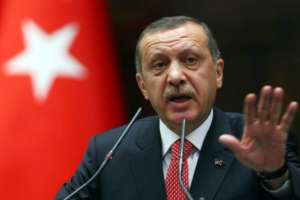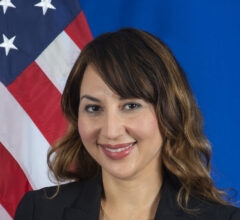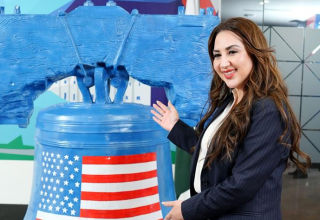
- Lack of media and observer access helping false news that favours Rohingyas
- Rohingya militant group ARSA said to have trained abroad
- ‘Leader is Ata Ullah — born in Pakistan, raised in Saudi Arabia’
- Group denies accusations
Myanmar’s de-facto leader Aung San Suu Kyi has claimed that the crisis in Rakhine state (where almost all the Rohingya people stay) is being distorted by a “huge iceberg of misinformation”. In her first comments on the latest Rohingya crisis, she said tensions were being fanned by fake news promoting the interests of terrorists.
Ms Suu Kyi made the comments in a phone call with Turkish President Recep Tayyip Erdogan, her office said. ore than 123,000 Rohingya (Arakanese Indians) fled Myanmar for Bangladesh — from where they had centuries ago fled to Mayanmar (Burma) — in two weeks. The latest outbreak of violence has sent waves of refugees fleeing the country, which is also called Burma.
Ms Suu Kyi reportedly told Mr Erdogan that her government had “already started defending all the people in Rakhine in the best way possible. We know very well, more than most, what it means to be deprived of human rights and democratic protection, so we make sure that all the people in our country are entitled to protection of their rights as well as the right to, and not just, political but social and humanitarian defence.”
The statement also said there were many fake news photographs circulating which were “simply the tip of a huge iceberg of misinformation calculated to create a lot of problems between different communities and with the aim of promoting the interests of the terrorists”.
Twitter has hundreds of thousands of tweets on the crisis since refugees began pouring over the border and many contain pictures purportedly showing a glimpse of the violence which has engulfed the region.
The violence in Rakhine: Some of the pictures come from other crises around the world, with one tweeted by Turkey’s Deputy Prime Minister Mehmet Simsek dating back to the Rwandan genocide in 1994.
But in Burma, just as in all nascent budding democracies that are just peeking out from behind the iron curtain of oppression, journalists, human rights officials and the UN are not allowed access to the region and this allows for fake news to germinate because the government is not allowing them access to the troubled areas to see for themselves. Not only have some 123,000 people crossed into Bangladesh since 25 August, but in addition to these numbers about 36,000 additional refugees are also living in host communities and spontaneous sites dotted around the border region.
As with some others, the latest conflict was sparked on 25th August when Rohingya militants attacked police posts, triggering a military counter-offensive. The military says it is fighting Rohingya militants who are attacking civilians. But the Rohingya families streaming north into Bangladesh have been reporting that security forces, sometimes backed by armed Buddhist civilians, burned their villages and opened fire on their inhabitants. The Bangladeshis on the other hand believe Myanmar has been laying landmines along the border, despite the flood of refugees trying to cross to safety. The allegations came after blasts were heard in the area.
Ms Suu Kyi was awarded a Nobel Peace Prize for her work bringing democracy to Burma and while she has previously acknowledged problems in Rakhine state, she has denied ethnic cleansing of the Rohingya. Several fellow laureates have called on her to act in the latest conflict, and the UN’s special rapporteur on human rights in Myanmar this week said she must act.
Her biographer Justin Wintle told the BBC that he was “flabbergasted” by Ms Suu Kyi’s response, saying he thought she was “impervious” to international opinion and was now “in the army’s pocket”.
The BBC’s Fergal Keane once said on the issue, “She has achieved a lot and we shouldn’t hide away from that fact,” he said. “But then you get into a zero sum equation where she won’t stand up to the generals then what’s the point, quite frankly?”
The Rohingyas’ friends: There have been outpourings of support from politicians like President Erdogan, and Chechen leader Ramzan Kadyrov, among others. In Indonesia, thousands marched on Myanmar’s embassy in a show of solidarity with the Rohingya, while Foreign Minister Retno Marsudi is urging Ms Suu Kyi to help end the bloodshed.

However, Myanmar’s neighbours have come under criticism for not doing more to deal with the crisis. Bangladesh has previously refused to recognise the Rohingya as refugees, with Amnesty International accusing the country of sending people back to Myanmar to face an uncertain future. Earlier this year, the government in Dhaka suggested relocating the Rohingya refugees to a low-lying island vulnerable to flooding and without roads in the Bay of Bengal.
Meanwhile, Indian Prime Minister Narendra Modi met Ms Suu Kyi in Burma on Wednesday to “share her government’s concern” about extremist violence in Rakhine State and the innocent lives lost, but not criticizing Bangladesh. Mr Modi swore last month to deport the 40,000 Rohingya living in India.
Thailand appears to have a more welcoming stance towards the Rohingya, with Prime Minister Prayuth Chan-ocha telling reporters they were preparing for arrivals and “will provide them with shelter like in the past… and send them back when they are ready”.
The Arakan Rohingya Salvation Army (ARSA): Security forces in Myanmar have come under attack from a new insurgent group that calls itself ARSA. The insurgents claim to be acting on the behalf of Myanmar’s Rohingya and their group ARSA operates in Rakhine state (also called Arakan) in northern Myanmar, where the mostly-Muslim Rohingya people have faced persecution. The Myanmar government has denied them citizenship and sees them as illegal immigrants from Bangladesh.
Clashes erupt periodically between ethnic groups but in the last year, an armed Rohingya insurgency has grown. ARSA, previously known by other names including Harakah al-Yaqin, has killed more than 20 police officers and members of the security forces.
The Burmese government calls it a terrorist organisation and says its leaders have trained abroad. The International Crisis Group (ICG) also says the militants have trained abroad and released a report in 2016 saying the group was led by Rohingya people living in Saudi Arabia. The ICG says ARSA leader is Ata Ullah, who was born in Pakistan and raised in Saudi Arabia.
But a group spokesman said ARSA had no links to jihadist groups and only existed to fight for Rohingya people to be recognised as an ethnic group. The spokesman said ARSA had been training people since 2013. But their first attack was in October 2016, when they killed nine police officers.
The ICG says ARSA members are young Rohingya men angered by the state’s response to deadly riots in 2012. Young men trying to escape the area used to be able to do so by boat to Malaysia, but the Malaysian navy blocked that route in 2015.
The UN’s special rapporteur on human rights in Myanmar has said the scale of the destruction now is “far greater” than last year.
The attacks on security forces have prompted a crackdown from the military, who say they are fighting against civilian-attacking militants. More than 100,000 Rohingya people have fled their villages and crossed the border to Bangladesh, where refugee camps are full. Many of them say the military, assisted by Buddhist monks, have razed villages and killed civilians. The government says Buddhists and Hindus have also fled attacks in the area. A UN representative, and the Nobel Peace laureate Malala Yousafzai,urged Ms Suu Kyi to stop the violence.





